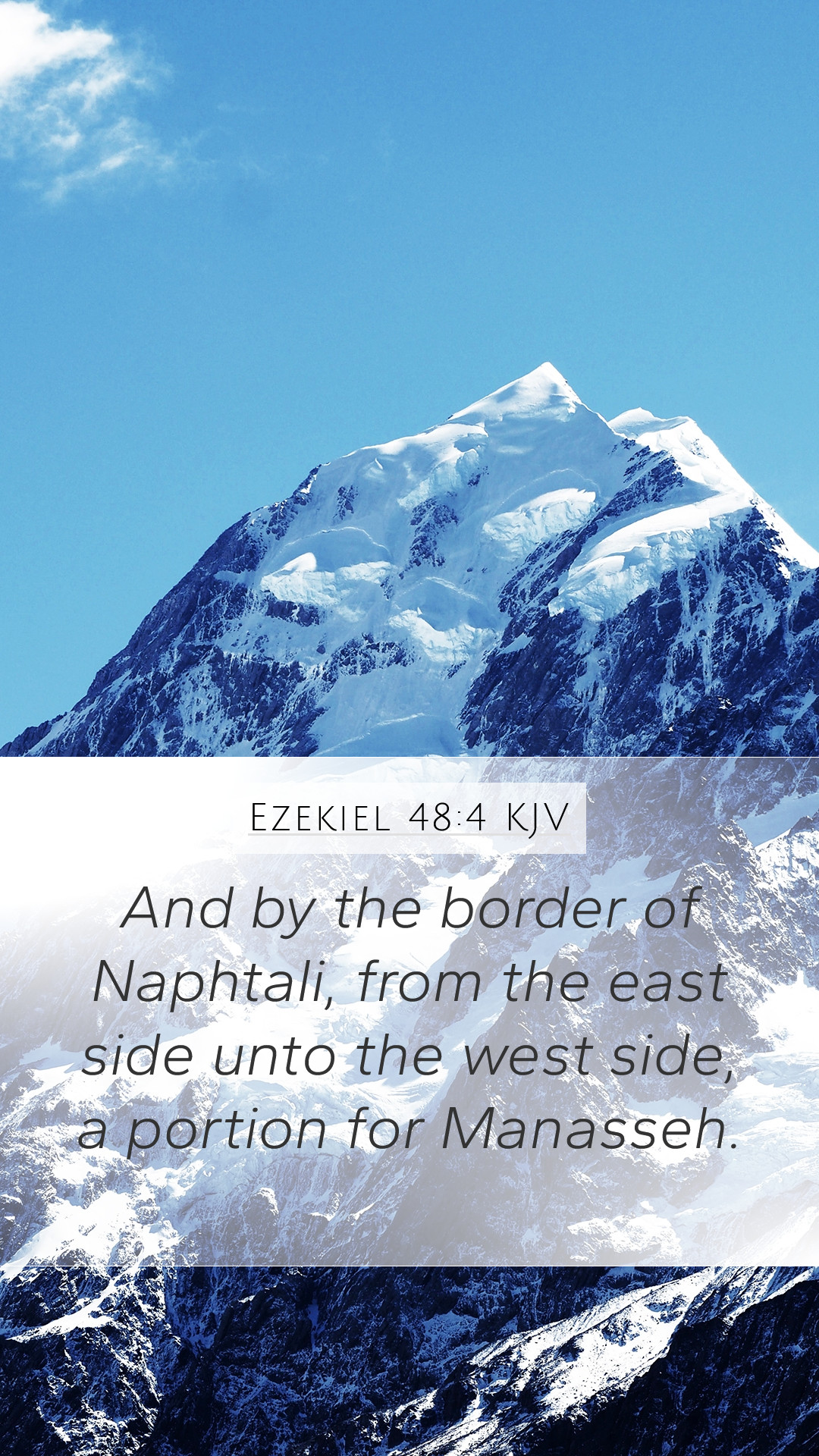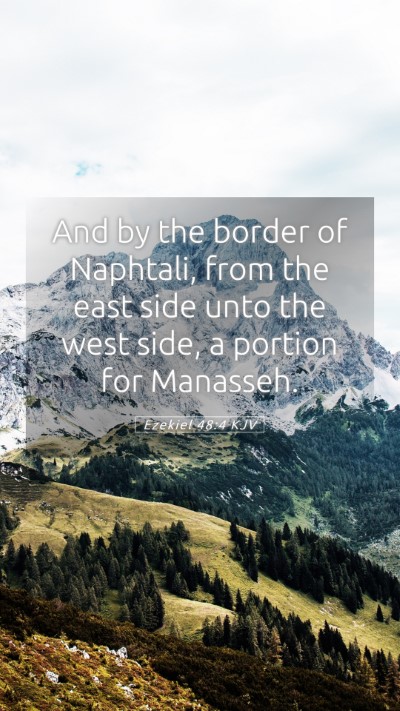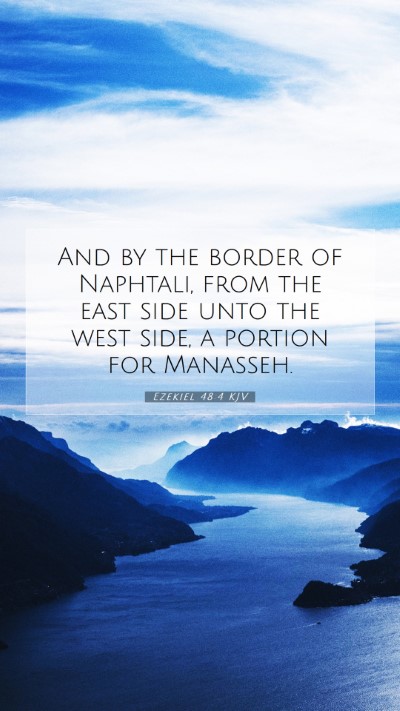Ezekiel 48:4 - Meaning and Interpretation
Ezekiel 48:4 states: "And by the border of Judah, from the east side unto the west side, shall be the offering which ye shall offer of five and twenty thousand reeds in breadth, and in length as one of the other parts of the city."
This verse is pregnant with profound meanings, encapsulating themes of land distribution, divine order, and a redefined relationship between God and His people. Below is an exploration of the verse's meaning combined from insights by Matthew Henry, Albert Barnes, and Adam Clarke.
Bible Verse Meanings
-
Divine Land Allocation:
The specific measurement of "twenty-five thousand reeds" indicates God's meticulous planning and divine allocation of land. It reflects God's sovereignty in designating portions of land for the tribes, symbolically denoting His ultimate authority over His people.
-
Boundary of Judah:
Judah's central role is emphasized, indicating that the tribe of Judah held a prominent position among the tribes of Israel. This encompasses both the physical territory and the spiritual significance attached to the tribe, as it ties back to the lineage from which the Messiah would come.
-
Offering to God:
The land described is not just a territorial marker but is also an offering to God. This illustrates the concept that all that we have—including our possessions and land—should be dedicated to God as an acknowledgment of His providence.
-
Symbol of Restoration:
The passage comes at a time of restoration for Israel, suggesting that the land's distribution signifies God's restoration of His people. After exile, the reinstitution of boundaries is a sign of God renewing His covenant with Israel.
Bible Verse Interpretations
The interpretation of Ezekiel 48:4 points to a future hope, where God re-establishes land for His people as a sign of His enduring promise. Through this land grant, we see an expression of hope that resonates with Isaiah's prophecies concerning the restoration of Israel.
Understanding Scripture
Understanding Ezekiel 48:4 requires examining its context within the broader scope of Ezekiel’s prophecies. Ezekiel often conveyed God’s plans in relation to worship, land, and the community’s life under God’s reign. As such, this verse serves as a critical component of the template for understanding God's intentions toward His people.
Bible Verse Commentary
-
Matthew Henry:
Henry’s commentary emphasizes the importance of divine organization within the intended borders. His analysis suggests that the distinctions among groups signify God’s order, which should be mirrored in the lives of believers today.
-
Albert Barnes:
Barnes highlights the geographical and theological implications of Judah's borders. He delves into the profound significance of how land represents God’s presence and identity with His people. It showcases God's promise that His people are securely established in His sight.
-
Adam Clarke:
Clarke elaborates on the necessity of understanding the spatial parameters within the context of the Israelite nation. His insights delve into how these designs foreshadow greater spiritual truths, inclusive of a more profound understanding of communal and individual identity in Christ.
Biblical Exegesis
Conducting a biblical exegesis of Ezekiel 48:4 invites us to engage deeply with the text, assessing historical, cultural, and linguistic contexts. Such examination reveals layers of significance, encouraging believers to appreciate the transformative nature of God’s covenant with Israel and its implications today.
Bible Study Insights
Engaging with Ezekiel 48:4 through personal or group study can lead to a rich understanding of God’s faithfulness, organization, and the concept of purpose within divine offerings. It challenges individuals and Bible study groups to reflect on what it means to collectively serve God with their lives and resources.
Related Bible Cross References
- Genesis 49:10 – Prophecy about the scepter not departing from Judah.
- Joshua 15:1 – Description of the lot of the tribe of Judah.
- Hebrews 11:16 – A heavenly city that awaits God’s people.
Application of Bible Verse
In applying Ezekiel 48:4 to daily life, believers are reminded of their responsibility to manage their resources in a manner that honors divine order and acknowledges God's sovereignty. Emphasizing stewardship over material possessions fosters a deeper sense of community and purpose under God’s overarching authority.
Conclusion
Ezekiel 48:4 serves as a profound reminder of God's intricate plan for His people. Through an understanding of scripture, biblical exegesis, and insightful commentary, believers can explore the significance of divine land distribution, the role of Judah, and the implications of restoration. As such, engaging with this verse further reveals the depth of God's love and commitment to His chosen people, ultimately leading the faithful to a more profound and practical relationship with scripture.


